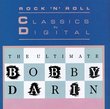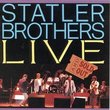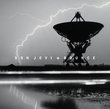| All Artists: Johnny Cash Title: Johnny Cash - Love, God, Murder Members Wishing: 1 Total Copies: 0 Label: Sony Original Release Date: 5/23/2000 Release Date: 5/23/2000 Album Type: Box set, Collector's Edition, Limited Edition, Original recording remastered Genres: Country, Pop, Rock, Christian & Gospel Styles: Cowboy, Outlaw Country, Classic Country, Vocal Pop, Oldies & Retro, Country & Bluegrass Number of Discs: 3 SwapaCD Credits: 3 UPC: 074646380925 |
Search - Johnny Cash :: Johnny Cash - Love, God, Murder
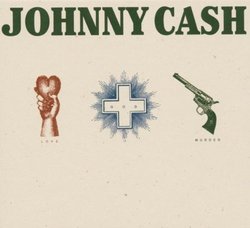 | Johnny Cash Johnny Cash - Love, God, Murder Genres: Country, Pop, Rock, Christian & Gospel
More than a few novelists and literature professors have cited the troika of love, god, and death as the basic subjects of all literary works. It just so happens that most music is about the same stuff, and Johnny Cash's m... more » |
Larger Image |
CD DetailsSynopsis
Amazon.com More than a few novelists and literature professors have cited the troika of love, god, and death as the basic subjects of all literary works. It just so happens that most music is about the same stuff, and Johnny Cash's music is especially so. Except in Cash's music, you can tease from the general (peculiarly American?) idea of death the more dramatic, intentional, cruel strain of murder. The distinction is crucial for Cash--and this 48-track, three-CD collection--as the struggle presented throughout this set is to understand the subject of a person's will. The will to love, the will to believe, the will to murder: each involves surrender, and most of Cash's protagonists surrender (or are so vanquished that there's no discernible difference). Barrel chested in its breadth, Cash's voice is as ideal a delivery mechanism for metaphysics as it is for the police blotter, the confessional, and the altar. As for the music, Love, God, Murder goes all out to follow its thematic breakdown, avoiding chronological layout--except for Sun-era classics like "Folsom Prison Blues" and "I Walk the Line" to open Murder and Love, respectively. Murder's inclusion of "Orleans Parish Prison" and its B-side "Jacob Green," both recorded in 1972 at Stockholm, Sweden's Osteraker Prison, testify at once to the American roots and global relevance of Cash's vision. The contrasts between '90s material like Kris Kristofferson's "Why Me Lord" and Cash's own "Redemption" (both from American Recordings) with 1958's "It Was Jesus" and 1959's "Great Speckled Bird" (on God) is inspired, a great way to track the sometimes single-mindedness of Cash in his investigation of human behavior. Sure, the inclusion of short commentaries by Cash, U2's Bono (on God), June Carter Cash (on Love), and filmmaker Quentin Tarantino (on Murder) amounts to very little of substance, but it's always nice to read Johnny on Cash and especially June Carter Cash on Johnny. Fans might question another packaging of Cash hits, but the impeccable logic of the song choices and their thematic placement make this slim box an inarguably good thing for most with a passing interest in--or even a lasting obsession with--Cash. --Andrew Bartlett Similar CDsSimilarly Requested CDs
|
CD ReviewsLove the Man in Black Brenda D. Lovelace | Canton, NC usa | 02/24/2008 (5 out of 5 stars) "I don't understand why these three CDs didn't have the Life Cd included in the set. But I love all of Johnny's music. Haven't heard a bad one yet and I hav A LOT of Johnny, June, the Highwaymen and I'm currently building on my Rosanne collection. She's the one who inhereted "the gift"."
|

 Track Listings (16) - Disc #1
Track Listings (16) - Disc #1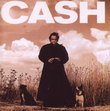

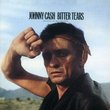
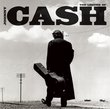


![The Greatest Hits [Capitol]](https://nationalbookswap.com/cd//m/33/6033/216033.jpg)
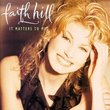
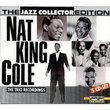
![The Rock N' Roll Era: 1960 [Time Life]](https://nationalbookswap.com/cd//m/04/7904/13247904.jpg)
